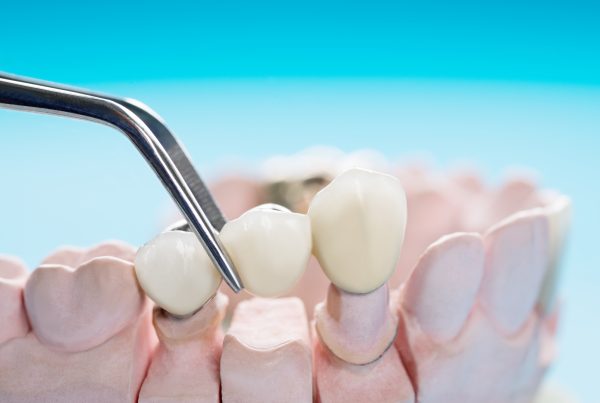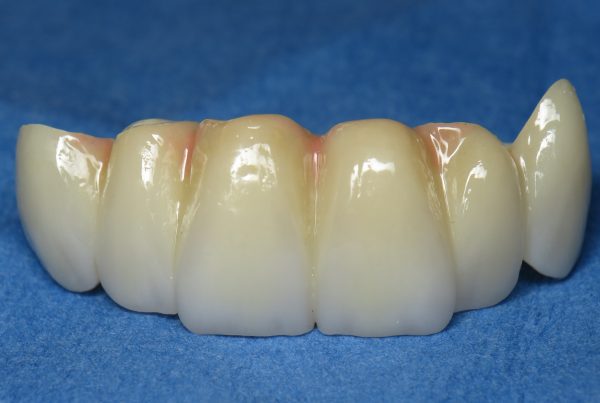How Much Does It Cost To Fix A Chipped Tooth?
Dealing with a broken or chipped tooth can be overwhelming, but don't worry – you're not alone! This common dental hiccup happens to many of us, and thankfully, fixing that smile of yours is quite straightforward. The price tag for repairing your chipped tooth does depend on a few things: how severe the damage is, what specific treatment your tooth needs, and whether you've got dental insurance in your corner.
If you're navigating this without insurance, you might face higher costs since you'll be covering the full repair yourself. But if you do have dental coverage, you could catch a break on those expenses – though how much of a break really depends on your specific plan's fine print. Getting clear on these differences helps you make smart choices about both your beautiful smile and your wallet. Remember, understanding your options for that broken tooth repair is the first step toward flashing those pearly whites with confidence again!

What are the different treatment options available for repairing a chipped tooth?
There are several treatment options available for repairing a chipped tooth, depending on the severity of the chip and the extent of damage. Here are some common approaches:
- Dental Bonding: This method involves applying a tooth-colored resin material to the chipped area and shaping it to match the natural tooth. The resin is hardened using a special light, bonding it to the tooth. Dental bonding is often used for minor chips and can be completed in a single visit.
- Dental Veneers: These are thin shells made of porcelain or composite resin that are custom-made to cover the front surface of a tooth. Veneers are used for more significant chips or to improve the appearance of the tooth. They require minimal tooth alteration and provide a natural-looking result.
- Dental Crown: For larger chips that significantly weaken the tooth’s structure, a dental crown may be recommended. Crowns are tooth-shaped caps that cover the entire visible portion of the tooth above the gumline. They restore the tooth’s shape, strength, and appearance.
- Enamel Shaping: Also known as contouring, this procedure involves reshaping and smoothing the chipped tooth’s enamel to improve its appearance. It’s typically used for minor chips and involves minimal discomfort.
- Root Canal Treatment: In cases where a chip extends deeply into the tooth, exposing the pulp and causing pain or sensitivity, a root canal procedure may be necessary. This involves removing damaged tissue, cleaning the root canal, and sealing it to prevent infection.
- Dental Implant: If a chipped tooth is severely damaged or cannot be saved, extraction might be necessary. A dental implant, which is a surgically placed artificial tooth root topped with a crown, can replace the missing tooth.
The choice of treatment depends on factors such as the size and location of the chip, the patient’s oral health, cosmetic preferences, and the dentist’s recommendation after a thorough evaluation. It’s important to consult a dentist to determine the most suitable treatment for a chipped tooth.
How much does it generally cost to repair a chipped tooth without dental insurance?
The cost of repairing a chipped tooth without dental insurance can vary based on several factors, including the severity of the chip, the location of the tooth, the chosen treatment, and the dentist’s fees. Here is a general estimate of the costs associated with different treatment options for repairing a chipped tooth:
- Dental Bonding: The cost for dental bonding to repair a chipped tooth can range from $100 to $400 per tooth, depending on the extent of the chip and the complexity of the procedure.
- Dental Veneers: Porcelain veneers are more expensive than composite veneers. On average, porcelain veneers can cost between $800 to $2,500 per tooth, while composite veneers may range from $250 to $1,500 per tooth.
- Dental Crown: The cost of a dental crown to repair a chipped tooth typically varies from $800 to $3,000 per tooth, depending on the type of crown material used (such as porcelain, metal, or a combination).
- Enamel Shaping: Enamel shaping costs vary but are generally on the lower end compared to other procedures, ranging from $50 to $300 per tooth.
- Root Canal Treatment: If a root canal is necessary due to the severity of the chip and potential damage to the tooth’s pulp, the cost can range from $500 to $1,500 or more, excluding the cost of a restoration like a crown.
- Dental Implant: If the chipped tooth is beyond repair and requires extraction followed by a dental implant, the cost can range from $3,000 to $4,500 or more per tooth, including the implant placement and crown.
It’s important to note that these are approximate costs and can significantly vary based on geographic location, the dentist’s expertise, the materials used, additional procedures needed, and any pre-treatment examinations or X-rays required.
To get an accurate estimate, it’s advisable to consult with a dentist who can assess the specific situation and provide a detailed treatment plan along with associated costs before undergoing any procedure.
The Cost of Repairing a Chipped Tooth Without Insurance
Treatment costs vary based on the severity of the chip, tooth location, chosen procedure, and your dentist's fees. Here's what you might expect to pay out-of-pocket:
Need an Accurate Estimate?
Consult with a dentist who can assess your specific situation and provide a detailed treatment plan with associated costs.

How does dental insurance coverage affect the cost of repairing a chipped tooth?
Having dental insurance in your corner can be a real game-changer when it comes to fixing a broken or chipped tooth! Your insurance plan typically picks up part of the tab for treatments like bonding, veneers, or crowns – though exactly how much depends on your specific policy.
When you’re looking at your dental coverage, you’ll want to understand the three key players that affect your final bill: co-payments (your share of the cost, either a fixed amount or percentage), deductibles (what you pay before insurance kicks in), and annual maximums (the ceiling on what your plan will cover each year). Even with insurance, you might still have some costs to handle yourself because of these factors.
That said, walking into the dentist with insurance card in hand usually means you’ll walk out with a much smaller bill than if you were paying completely out-of-pocket. It’s like having a financial cushion that softens the blow when dental surprises happen – making that broken tooth repair much more affordable for your wallet!
What specific dental procedures are typically covered by most dental insurance plans for chipped tooth repair?
When your dental insurance covers a broken or chipped tooth, it’s like having a safety net for your smile! Different plans offer different levels of protection, depending on your specific coverage, what caused the chip, and how serious the damage is.
Here’s what your insurance might help with:
- Your dental plan likely covers bonding – that’s when the dentist applies tooth-colored resin to smooth over smaller chips and cracks, blending it perfectly with your natural tooth.
- For more significant damage, insurance often helps with dental crowns too. These are custom-made caps that completely cover your damaged tooth, restoring both strength and appearance when a larger piece has broken off.
- Almost all plans will cover the detective work – those essential X-rays and exams your dentist needs to figure out exactly what’s happening with your broken tooth and how to fix it.
- If you chipped your tooth in an accident or sudden injury, many plans include coverage for emergency dental visits to address the problem quickly.
Before you head to your appointment, it’s worth calling your insurance company or asking your dental office to check your coverage. Some treatments might be fully covered while others only partially, and there could be waiting periods or pre-approval requirements that affect your costs. A quick verification can help you understand what portion of that broken tooth repair will come out of your wallet!

Are there any limitations or exclusions related to chipped tooth repair within dental insurance policies?
Yes, dental insurance policies often have limitations and exclusions related to chipped tooth repair and other dental procedures. Some of these limitations or exclusions may include:
- Waiting Periods: Dental insurance plans might have waiting periods before certain procedures, including chipped tooth repair, are covered. This means that coverage for specific treatments may not be immediate after enrolling in the plan.
- Pre-existing Conditions: Some insurance policies may have limitations on covering dental issues that existed before the policy’s start date. If the chipped tooth occurred before obtaining the insurance coverage, there might be restrictions or limitations on the coverage for its repair.
- Missing Tooth Clause: If the chipped tooth has been missing for a certain period before getting the insurance coverage, there might be limitations or exclusions related to repairing that particular tooth.
- Coverage Caps or Annual Maximums: Dental insurance plans often have annual maximums or limits on the total amount they will pay for dental treatments within a calendar year. If the cost of repairing the chipped tooth exceeds this maximum, the individual may have to cover the remaining expenses out-of-pocket.
- Cosmetic Procedures: Some insurance policies may consider certain chipped tooth repair procedures, particularly those focused solely on improving aesthetics (like veneers), as cosmetic and may provide limited coverage or none at all.
- Alternative Treatments: Insurance plans might cover only the least expensive alternative treatment for chipped tooth repair. If the individual chooses a more costly option, they may have to pay the difference in cost.
It’s essential for individuals to thoroughly review their dental insurance policy, understand its limitations, exclusions, and coverage details related to chipped tooth repair, and consult with their insurance provider or dental office to grasp the potential out-of-pocket costs before undergoing any procedures.
What are some tips for individuals without dental insurance to manage the costs of chipped tooth repair?
Looking for ways to fix that broken or chipped tooth without insurance? Don’t worry – you’ve got options that won’t break the bank!
- Check out dental discount plans or membership savings programs. While these aren’t insurance, they connect you with dentists who offer reduced rates – sometimes saving you 20-50% on fixing that chipped tooth! You pay an annual fee and get access to these discounted services right away, without waiting periods.
- Dental schools can be a hidden gem for affordable care. Student dentists (supervised by experienced professionals) need practice cases and offer treatments at a fraction of regular prices. Similarly, community health clinics provide dental services at lower costs based on your income.
- Talk directly with your dentist about payment options. Many dental offices understand that unexpected tooth repairs can strain your budget and offer in-house payment plans that let you spread the cost over several months. No massive upfront payment required!
- Ask about healthcare financing companies that partner with dental practices. These specialized credit lines often come with interest-free periods (typically 6-12 months) specifically for medical and dental treatments like repairing your broken tooth.
With these strategies, you can get that chipped tooth fixed without the financial stress – keeping both your smile and your wallet happy!


How can one find affordable dental care options for repairing a chipped tooth, especially without insurance?
Finding affordable dental care options for repairing a chipped tooth, particularly without insurance, may require exploring various resources and strategies:
- Local Community Health Clinics: Community health clinics often provide dental services at reduced rates or on a sliding fee scale based on income. These clinics aim to offer affordable healthcare, including dental care, to individuals without insurance.
- Dental Schools: Contacting dental schools or universities with dental programs can be a viable option. Dental students, under the supervision of experienced professionals, often provide dental services at lower costs as part of their training.
- Nonprofit Organizations and Charities: Some nonprofit organizations and charities specialize in offering low-cost or free dental care to those in need. Researching and reaching out to such organizations within your community might help access affordable dental services.
- Local Free or Low-Cost Dental Days: Occasionally, dental offices, clinics, or organizations organize free or low-cost dental care events for the community. These events may include chipped tooth repair among the services offered.
- Negotiating Payment Plans: Many private dental practices are willing to negotiate payment plans or offer discounts for upfront payments. Discussing payment options directly with the dentist or the office manager might help make the cost of treatment more manageable.
- Dental Discount Plans: Consider joining dental discount plans or membership-based dental savings plans that offer reduced rates for various dental services, including chipped tooth repair, at participating dental providers.
- Online Resources and Apps: There are online platforms and apps that help individuals find affordable dental care options, compare prices, and locate dental clinics that offer discounted services.
It’s important to conduct thorough research, inquire about fees, and discuss payment options directly with dental providers or relevant organizations to find the most suitable and affordable option for repairing a chipped tooth without insurance.


